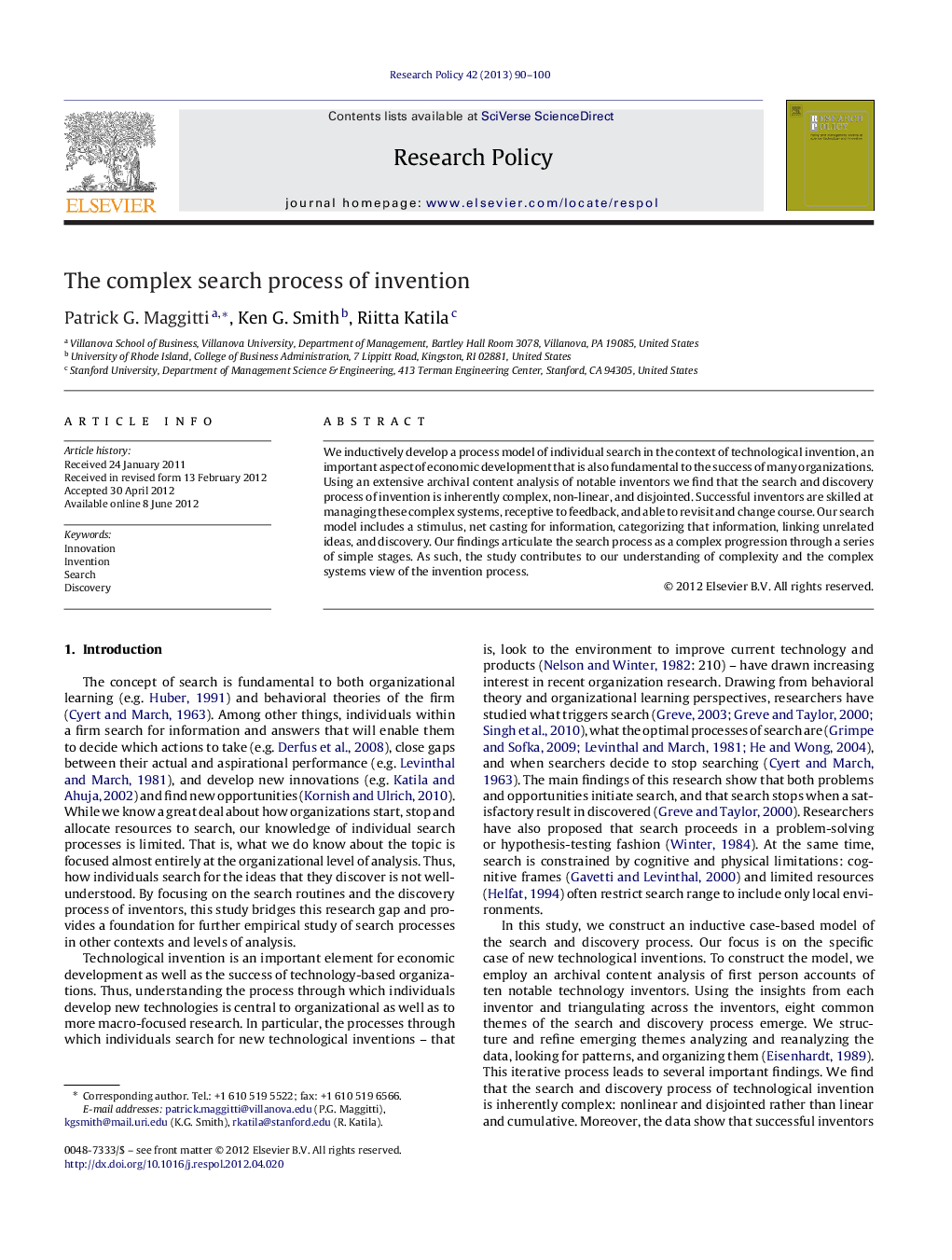| Article ID | Journal | Published Year | Pages | File Type |
|---|---|---|---|---|
| 984686 | Research Policy | 2013 | 11 Pages |
We inductively develop a process model of individual search in the context of technological invention, an important aspect of economic development that is also fundamental to the success of many organizations. Using an extensive archival content analysis of notable inventors we find that the search and discovery process of invention is inherently complex, non-linear, and disjointed. Successful inventors are skilled at managing these complex systems, receptive to feedback, and able to revisit and change course. Our search model includes a stimulus, net casting for information, categorizing that information, linking unrelated ideas, and discovery. Our findings articulate the search process as a complex progression through a series of simple stages. As such, the study contributes to our understanding of complexity and the complex systems view of the invention process.
► Search, while often theorized about the management literature, has received little empirical investigation. ► We analyze search processes of inventors to inductively develop a model using this important context. ► We find search to be an exceedingly complex process. ► The timing and success of discovery rely not only on the individual searcher's persistence, effort, and motivation but also on his or her ability to continuously reevaluate the ever-changing context landscape in conjunction with their own knowledge and experience.
